Why Superhero Movies Swing Between Success And Failure
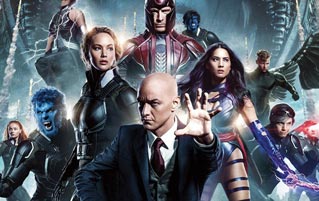
The same week that Joaquin Phoenix became the second guy to win an Oscar for playing the clown who pesters Batman, a film about said clown's ex-girlfriend did so badly that they decided to change its name. (Say what you will about Cats, at least they didn't rename it Taylor Swift Is In This three days after it came out.) Sometimes it feels like superhero movies swing wildly between success and failure with no rhyme or reason. But there is a hidden logic to this cycle.
To illustrate this phenomenon, let's look at the superhero genre's best-worst franchise: the X-Men. The cinematic adventures of Wolverine and his occasionally blue pals started off strong with the first two X-Men movies, which have a score of 81% and 85% on Rotten Tomatoes, respectively. They offered fantastic superpowers and implausible hairdos audiences had never seen before, and it worked so well that it helped kick-start the trend that would eventually overtake all of American cinema.
Don't Miss
Related: 5 Ways To Keep Your Superhero Movie From Being Terrible
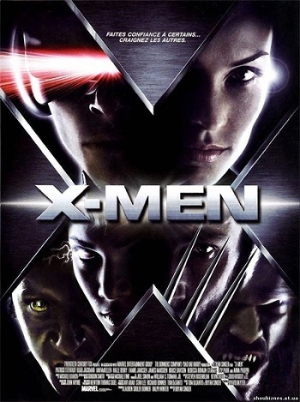
But then things went downhill fast with X-Men: The Last Stand ( 57%) and X-Men Origins: Wolverine ( 37%), aka the first two solo Wolverine movies. They tried to play it safe by continuing the tone of the earlier movies while focusing on the most popular character, but no one gave a shit. But then the franchise was reinvigorated by X-Men: First Class ( 86%), which featured a brand-new cast and setting, limiting the obligatory Wolverine quota to one scene and three words.
The Wolverine ( 71%) improved on the character's previous solo outing by completely ignoring it. X-Men: Days Of Future Past ( 90%) kicked things up to a new level, tying together threads from the main series, First Class, and The Wolverine. It was a crazy idea, and it paid off. But then the series began decaying again, thanks to the derivative Apocalypse ( 47%) and Dark Phoenix ( 23%), with the bold and original Logan ( 93%) awkwardly sandwiched in between.
Starting to see a pattern? Something similar has happened in other franchises. Superman, Batman, and Spider-Man all started with two classic movies, only for the adventures to devolve into wacky shitshows.
Related: 5 Ways The Rules Of Reality Ruin Superhero Movies

All three have since rebooted into "fresh" territory, to varying degrees of success ( 75%, 84%, 73%), but the descent back into "rotten" was inevitable ( 56%, 28%, 52%). Batman has since recovered again by going on a vastly different direction with Joker (if you think Baby Bruce's appearance qualifies it as a Batman movie), while Spider-Man freshened up by joining the MCU.
Speaking of which, Marvel Studios movies never sink too low on the Tomatometer, but even they clearly alternate between the ones that are truly beloved and the ones nobody ever watches outside of marathons (and they're mostly used for sleep/poop breaks). Oh, and note that among the individual series, all of the lowest-scoring movies are Part Twos: Age Of Ultron ( 75%), Iron Man 2 ( 73%), Thor: The Dark World ( 66%), and The Incredible Hulk: Fuck You Ang Lee But Also Thank You For Telling The Origin So We Don't Have To ( 67%).
To understand why superhero movies seem to bounce between awesomeness and mediocrity, we have to go back to the comics. Let's return to the X-Men, since the good/suck cycle seems to be embedded into their DNA. (It's their unspoken common mutant power.) The comic debuted in the '60s in the hands of Stan Lee and Jack Kirby, who introduced the concepts of mutants, mutant supremacists, the Xavier School for Gifted Youngsters, the Danger Room, and Professor X being a creep, all in the first issue.
Related: 6 Specific Reasons Why Superhero Movies Ruined Comic Books
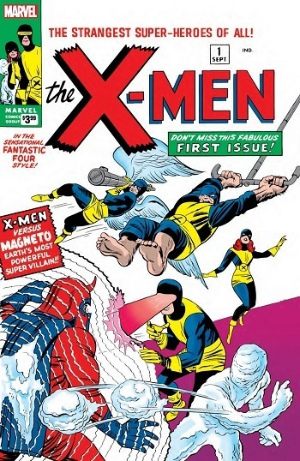
But after that initial burst of creativity, Lee and Kirby soon handed the series to other writers and artists, who were afraid to mess with the formula too much. The only additions to the team during this period were Havok (Cyclops' brother who just shoots lasers from a different body part) and Polaris (Magneto's daughter who has Magneto powers). Sales were so bad that Marvel stopped making new X-Men stories and turned the comic into a reprint series for several years. And it was only because the series reached that low point that Marvel decided to change the formula and introduce a bunch of weird new characters with forks coming out of their knuckles and such.
Related: 5 Famous Superhero Movie Scenes That Are Already Outdated
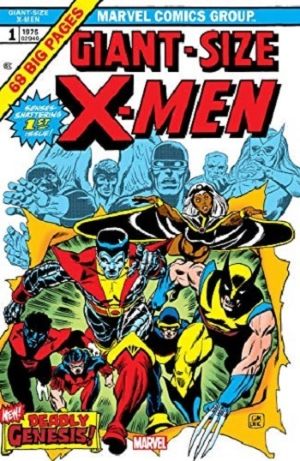
This new team produced pretty much all of the most famous X-Men stories ever, and the comic became Marvel's biggest cash cow. But then as the publisher got complacent, the series went into another stale period. Then the X-Men turned cool again in the early '90s when writer Chris Claremont and artist Jim "No Relation to Ang" Lee started changing shit up ... including the uniforms, which must have smelled by then. Their X-Men #1 is still the best-selling comic of all time, moving 8 million copies.
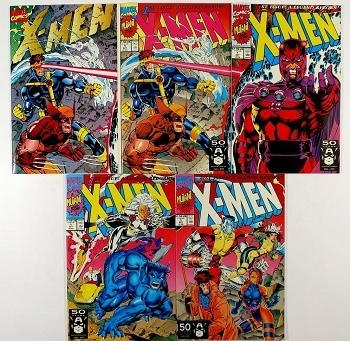
But then Lee left to form his own company, and we got years of copycats trying to recapture that vibe. Sales tanked again, Marvel went bankrupt, and since they had nothing to lose, they agreed to let writer Grant Morrison turn the series upside-down with a bunch of bizarre concepts like a guy whose brain is a star (Or is it?) and a villain who turns out to be the twin Professor X strangled in the womb. Morrison wrote a manifesto wherein he basically said, "Hey, this comic blows now, let's do something different."
Related: 5 Superhero Movies That Are Only Worth It For One Scene
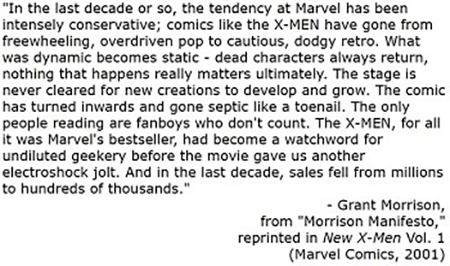
And that's the key. After Morrison's New X-Men turned out to be a hit, Marvel spent years mining his most popular ideas while discarding the crazier ones, and so things got "static" and "conservative" (read: boring AF) again. After yet another low point in the franchise, the cycle restarted again last year thanks to writer Jonathan Hickman. In his hands, the entire selling point is that you no longer have to have read every single X-Men comic to understand what the fuck is going on. Hickman specifically asked for all of the X-Men series to be cancelled before beginning his run to make it clear that it's not the same old shit. (For now, anyway.)
So the superhero cycle is this: They find something that works, they do it over and over again until it no longer works, then they get desperate enough to shake things up and start over. Superhero comics have been doing this dance for decades. And now the movies are doing it too.
The Last Stand and Origins: Wolverine were awful, but if they hadn't sucked, the studio wouldn't have tried something different with First Class. The Dark World gave us the precious gift that is Thor: Ragnarok. Without Batman & Robin, Chris Nolan would be doing James Bond movies or something. Like in the comics, once the series starts sucking, they change the creative team and go in a different direction. And if you half-ass the reboot, like with Superman Returns (more a love letter to the original movies than its own thing) or The Amazing Spider-Man (too much like the Sam Raimi version, except Spidey now improbably uses Bing), you're only stalling the decline.
So maybe the reason the MCU seems to work is that since the movies are connected and you gotta watch them all to get to the comics-style "big crossover event" ( they're already planning the next one, by the way), they have to constantly switch things up. You can go from a spy thriller to a space opera to a heist comedy. They're basically tricking our dumb cavemen brains into thinking this is one series in a constant state of reboot. In short: DC, if you want your cinematic universe to finally take off, make the Flash movie a historical period drama.
Follow Maxwell Yezpitelok's heroic effort to read and comment every '90s Superman comic at Superman86to99.tumblr.com.
For more, check out The Inevitable Future Of Each Superhero Universe:
Follow us on Facebook. Excelsior!